Filmmaker Vonne Patiag writes for the NFSA about creating a hit series with a female-led group of Muslim writers and actors from Sydney's western suburbs.

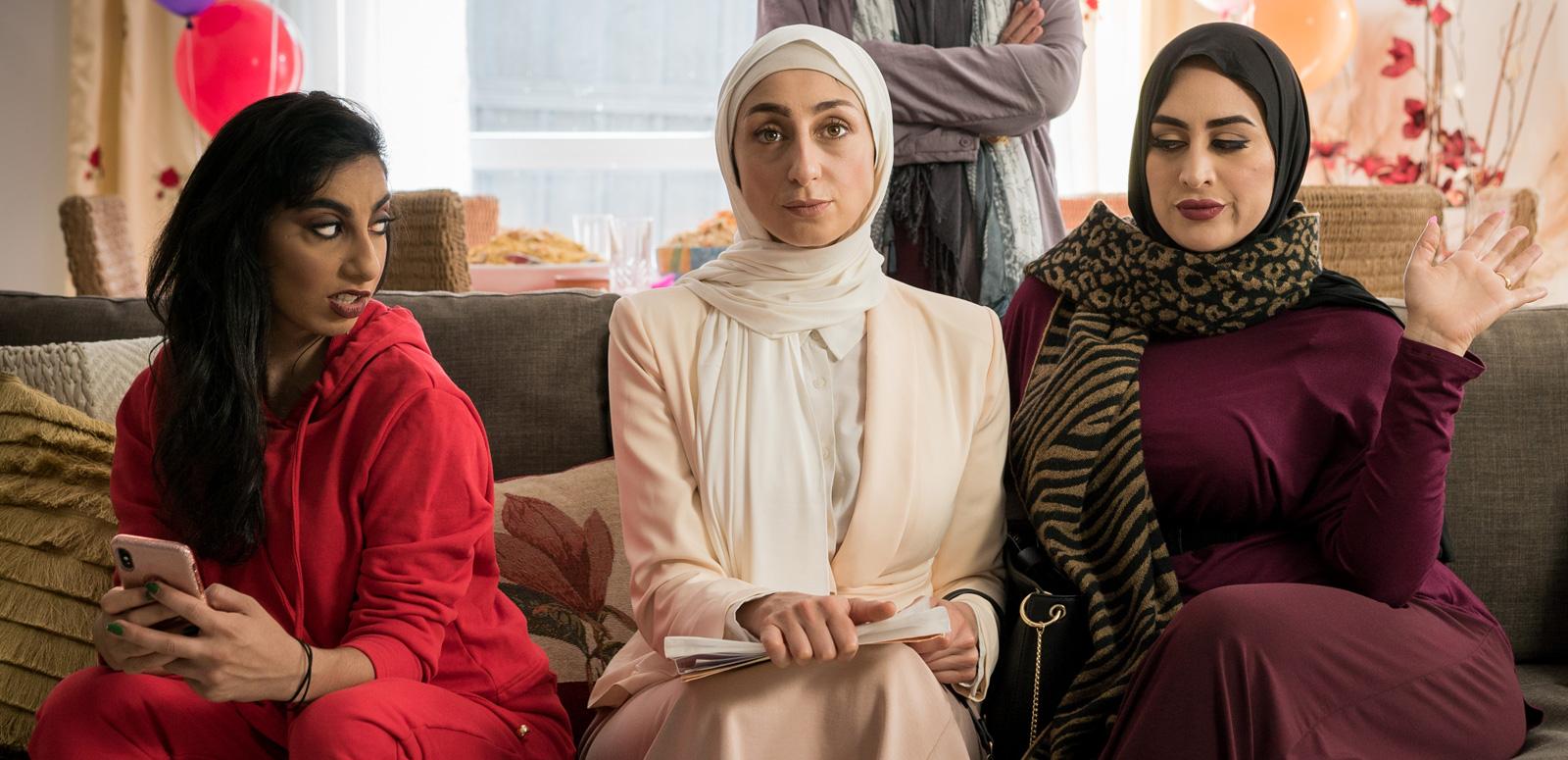
Filmmaker Vonne Patiag writes for the NFSA about creating a hit series with a female-led group of Muslim writers and actors from Sydney's western suburbs.
Working on and releasing Halal Gurls has been quite the adventure over the last few years. The small web series born out of a Western Sydney development initiative (Digital First via ABC, Create NSW and ICE) blossomed into an internationally well-received online comedy series that has garnered nominations for Best Web Series at the 2020 AACTA Awards and Best Web Series Screenplay at the 2020 Australian Writers' Guild AWGIE Awards, as well as playing numerous web series film festivals across the globe.
Many people describe the series as ‘groundbreaking’ for its approach to diversity and inclusion, but to me, the show was developed through a process that was informed by my cross-disciplinary and cultural work.
Being from Western Sydney, where diversity isn’t an afterthought but a reality, it felt natural to collaborate inclusively with writers and performers from the community. This led to a writers’ room of predominantly female Muslims, many of them first-time screenwriters.
Many of the cast were also first-time screen performers, and we especially took care in the casting process to seek Hijabi actresses who may not have had a chance to act for screen before.
Halal Gurls: Episode 3 Going Up, 2019. NFSA title: 1590956
It is mainly retrospectively that I can see how different the process of working with community in Halal Gurls differs from standard industry practice, and some key memories from the bumpy road of pulling the series through development to production spring to mind. In one of the first pitch meetings, executives asked how advanced the development was on scripts, and I mentioned it was important for the project to be commissioned first before the female writers were expected to start sharing their stories. This could have been misconstrued as naïve or brash, but rather I could sense the weight of these personal stories, and chose to limit forcing these writers from being so vulnerable with their storytelling so early in the process.
Another instance was casting one of the lead male roles – there was concern about a first-time actor’s limited ability, but from a conversation with the writers, I knew the importance of casting a Muslim instead of a Lebanese-Christian actor in the role. I worked extensively with the actor, defending his casting choice, and directed his second screen test to bring out his best performance – this eventually got him approved for the role. These were all small wins at the time but I was guided by creating a show that was as authentic to the community as possible. As any good producer must, I was learning fast about what to defend and what to negotiate with the various stakeholders.
This inclusive process paid off once it came time to release the series via ABC iView. Within a matter of days our launch trailer went viral garnering 100K+ views and multiple articles were written about the ‘World’s First Hijabi Comedy.’
But the real impact of the series wasn’t just about numbers – it was through the conversation online, facilitated by our coordinated social media campaign that spanned Facebook and Instagram (with the ABC’s blessing we were able to create and manage our own social media accounts). Almost instantly, interested viewers flocked to our social channels to comment on the series, and extreme debates raged about political correctness and the beauty of much-needed representation for Australian screens (see images from the series in the gallery below).
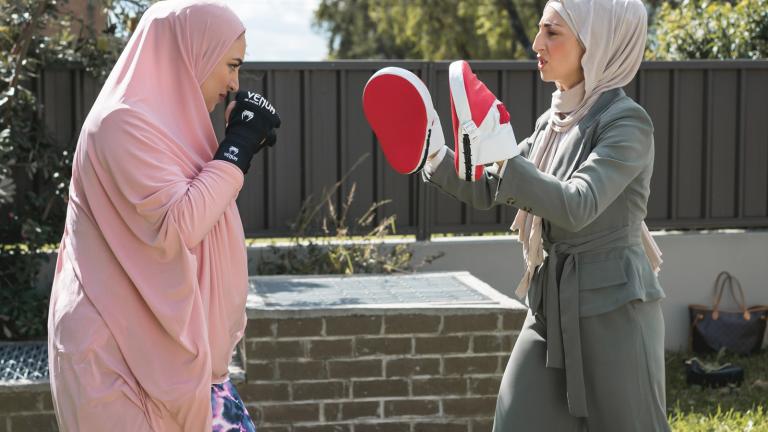
Jessica Phoebe Hannah and Aanisa Vylet square off in Halal Gurls: Episode 6 Driving Lessons.
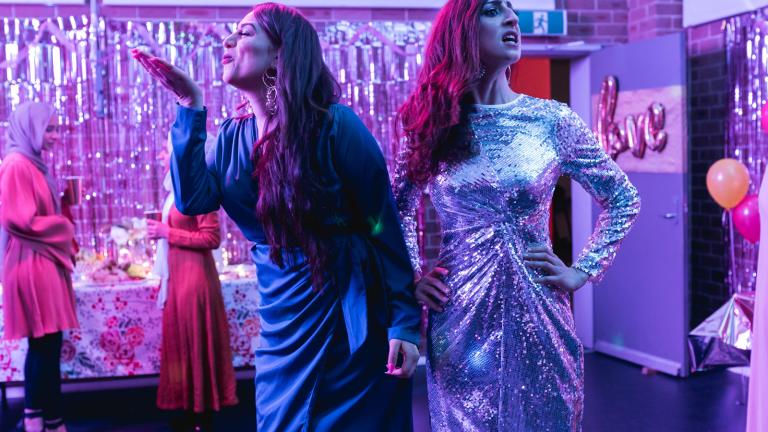
Jessica Phoebe Hannah and Aanisa Vylet in Halal Gurls: Episode 5 After Hours.
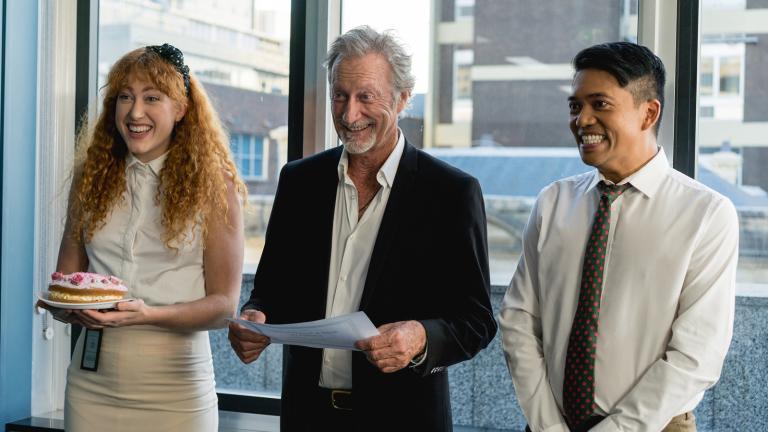
Brielle Flynn, Bryan Brown and Vonne Patiag in a scene from Halal Gurls.
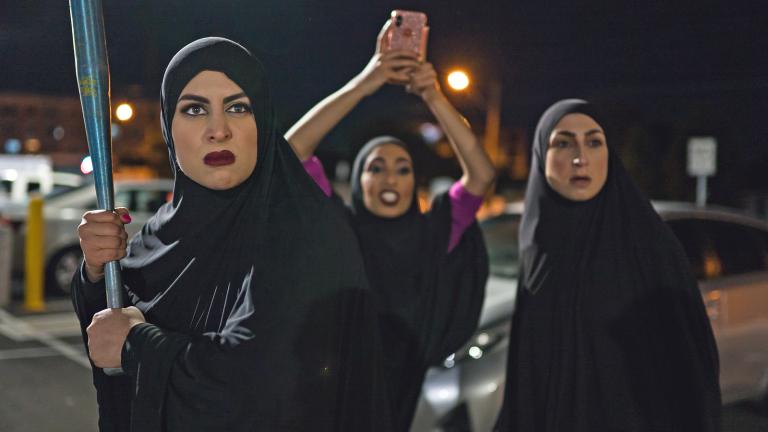
Jessica Phoebe Hanna, Hajer and Aanisa Vylet in a scene from Halal Gurls: Episode 4 For the Likes.
Some local community members also expressed concern that the show would represent the Muslim community in a negative light, but we were able to anticipate this when writing the show, acknowledging that the various flawed and comic characters we were crafting would present the vulnerabilities and strengths of a cultural community for the first time. We saw the full impact of the series once Halal Gurls was released on YouTube to a global audience – within weeks our pilot episode had more than 250,000 views and our online video content garnered more than 1.4 million views in subsequent months.
In the two years since release, we’ve received thousands of direct messages from viewers across the world, telling us how important the show is to them in allowing them to see themselves on screen. Viewers tuned in from countries such as the US, UK, France, Egypt, Libya, Oman, Malaysia, Pakistan (and many more), allowing us to facilitate global conversations with our audience and to share more stories about resilient and often hilarious experiences from other Halal Gurls across the world.
Since the series aired, I’ve had the pleasure of working on some longer-form projects, including collaborating on the anthology feature Here Out West and writing and producing on the four-part series The Unusual Suspects, both set for release later in 2021.
I’ve found myself swept up in numerous discussions in the industry about the different approaches we can take towards diversity, representation and cultural inclusivity, and all I can do is share my experience and acknowledge that as an industry we will make honest mistakes along the way as we break new ground. But the important thing is to try something new; mix your teams with emerging and established talent, welcome the different perspectives Australian creatives have to offer, know that each project demands a different process and approach to development and production and, most importantly, celebrate the small wins as we incrementally change. Be open to collaboration, cooperation and competition – more stories in the marketplace of ideas can only make our industry stronger.
Halal Gurls taught me so much as an emerging filmmaker. Despite our small budget and limited resources, we showed the industry that when you’re inclusive in your creative approach, you also include the audience in the conversation, resulting in work that empowers both sides of the screen. And that’s something I hope we continue to aim for as we craft more local Australian stories.
Halal Gurls is available to stream here on ABC iView and also features in our Web series curated collection.
Main image: Hajer, Aanisa Vylet and Jessica Phoebe Hanna in Halal Gurls
The National Film and Sound Archive of Australia acknowledges Australia’s Aboriginal and Torres Strait Islander peoples as the Traditional Custodians of the land on which we work and live and gives respect to their Elders both past and present.